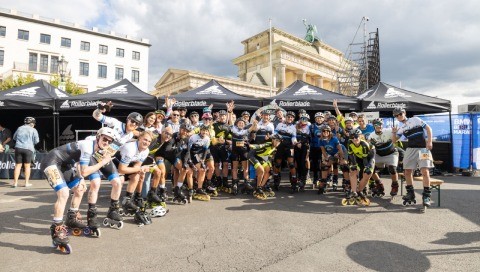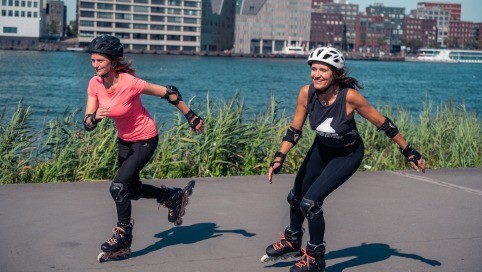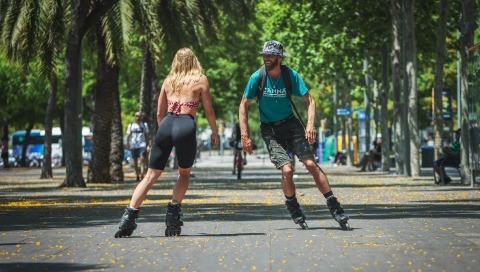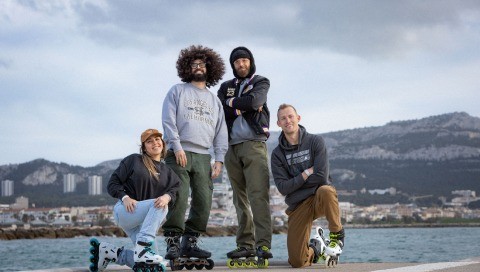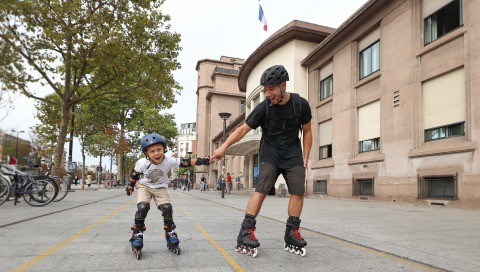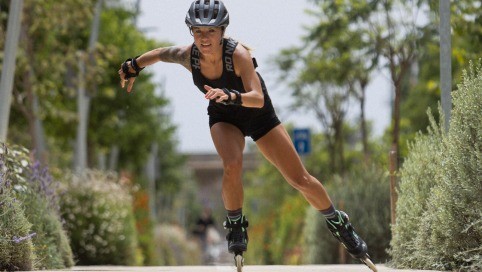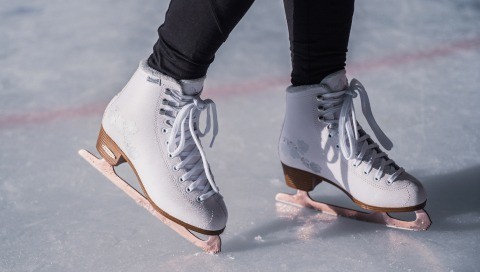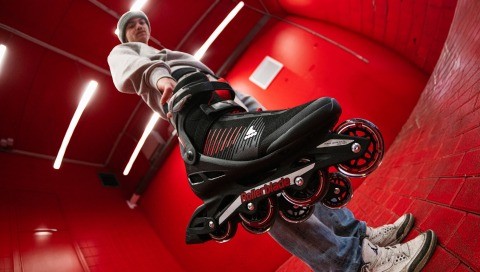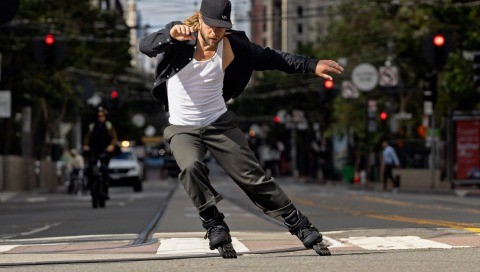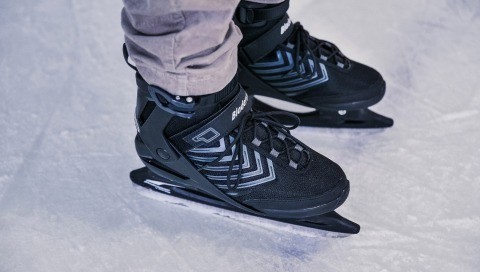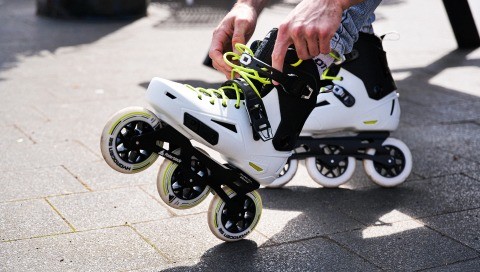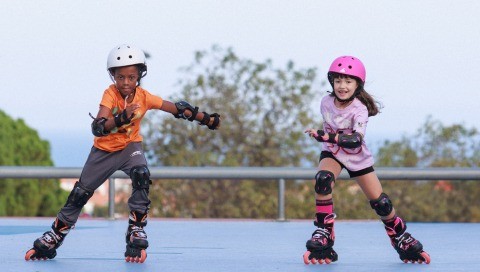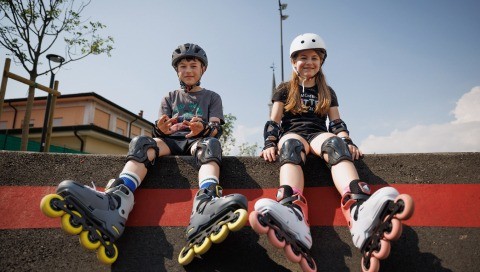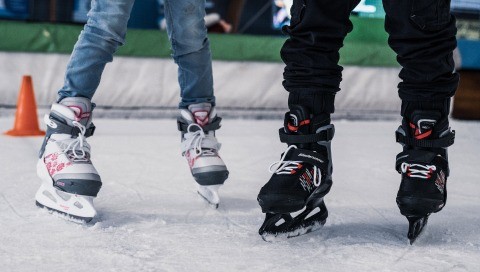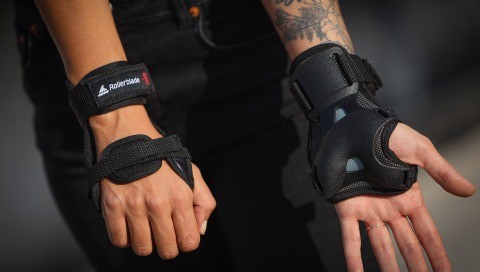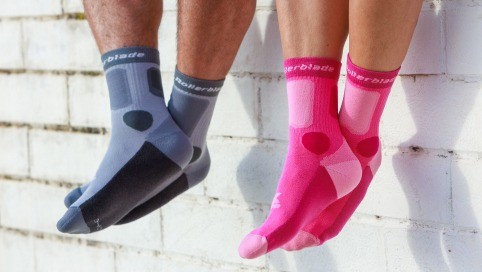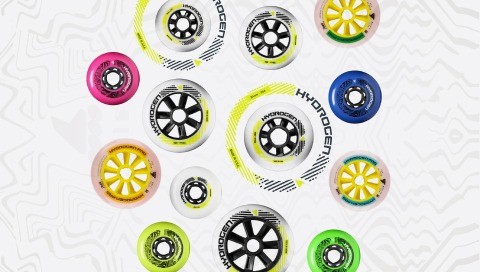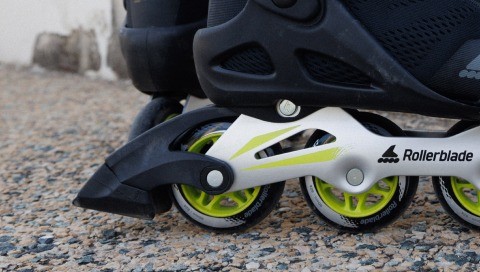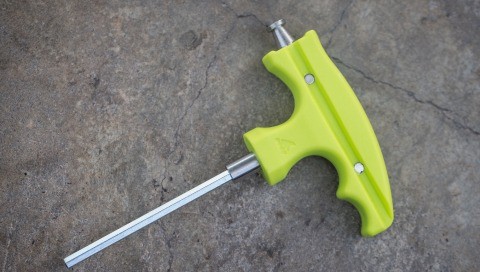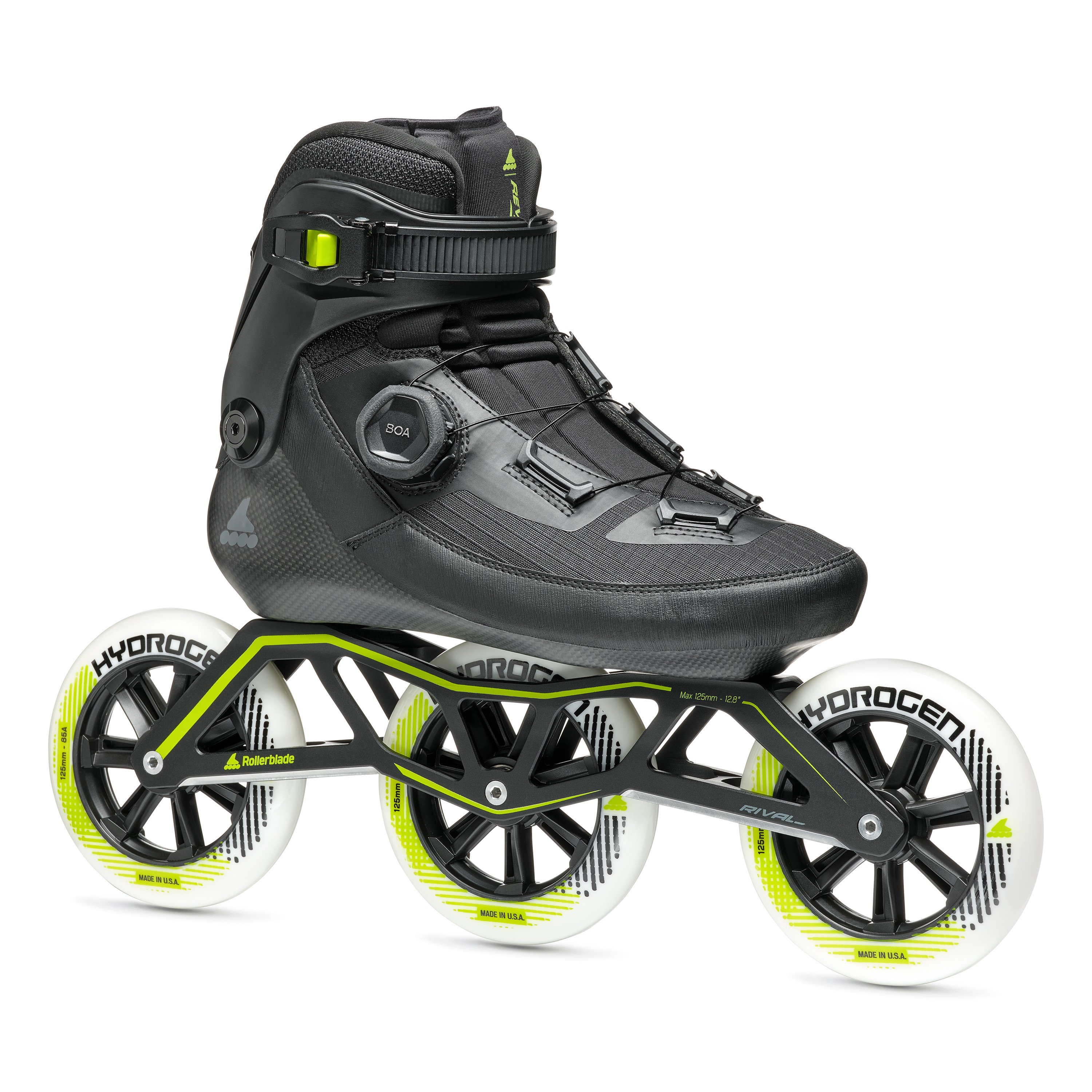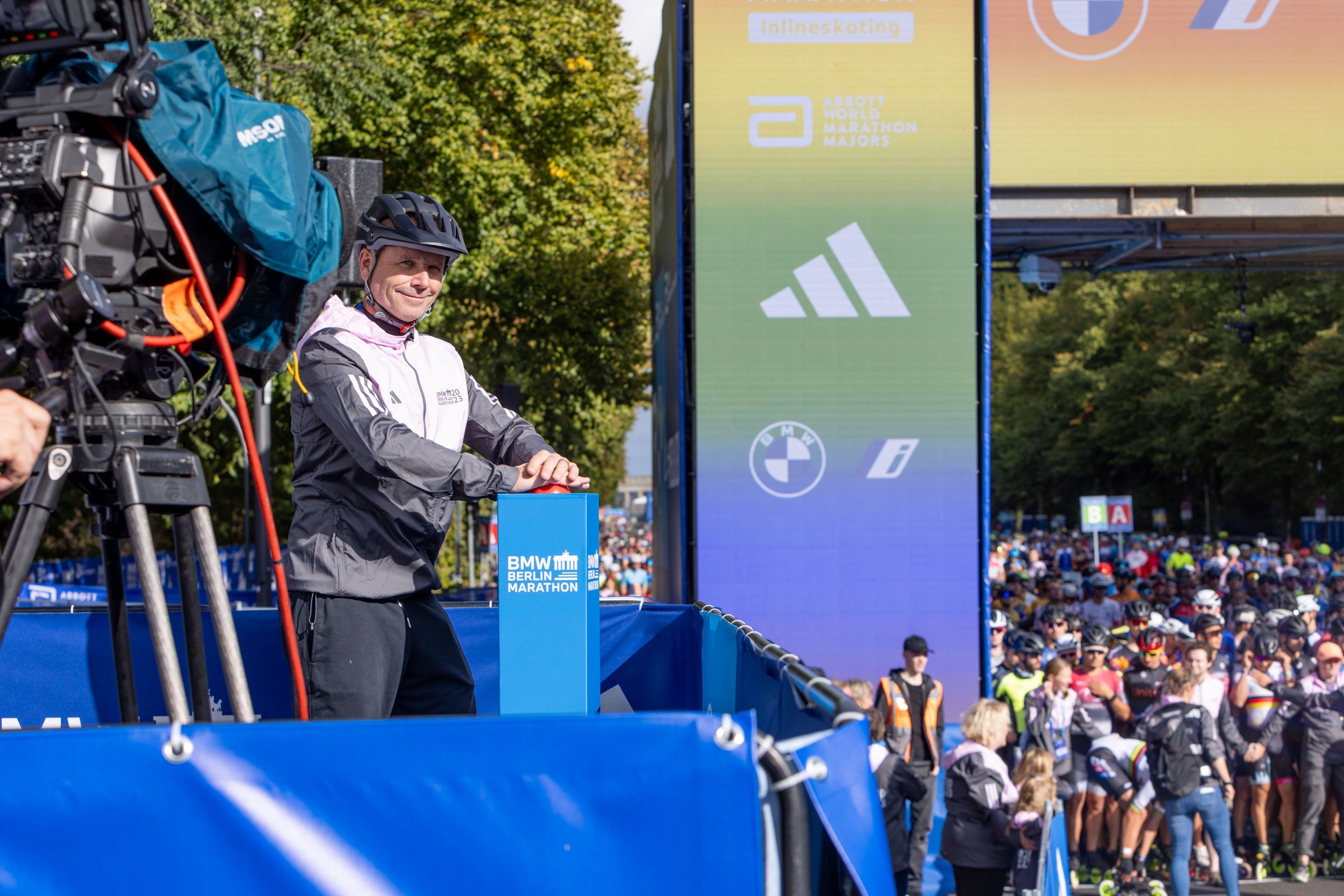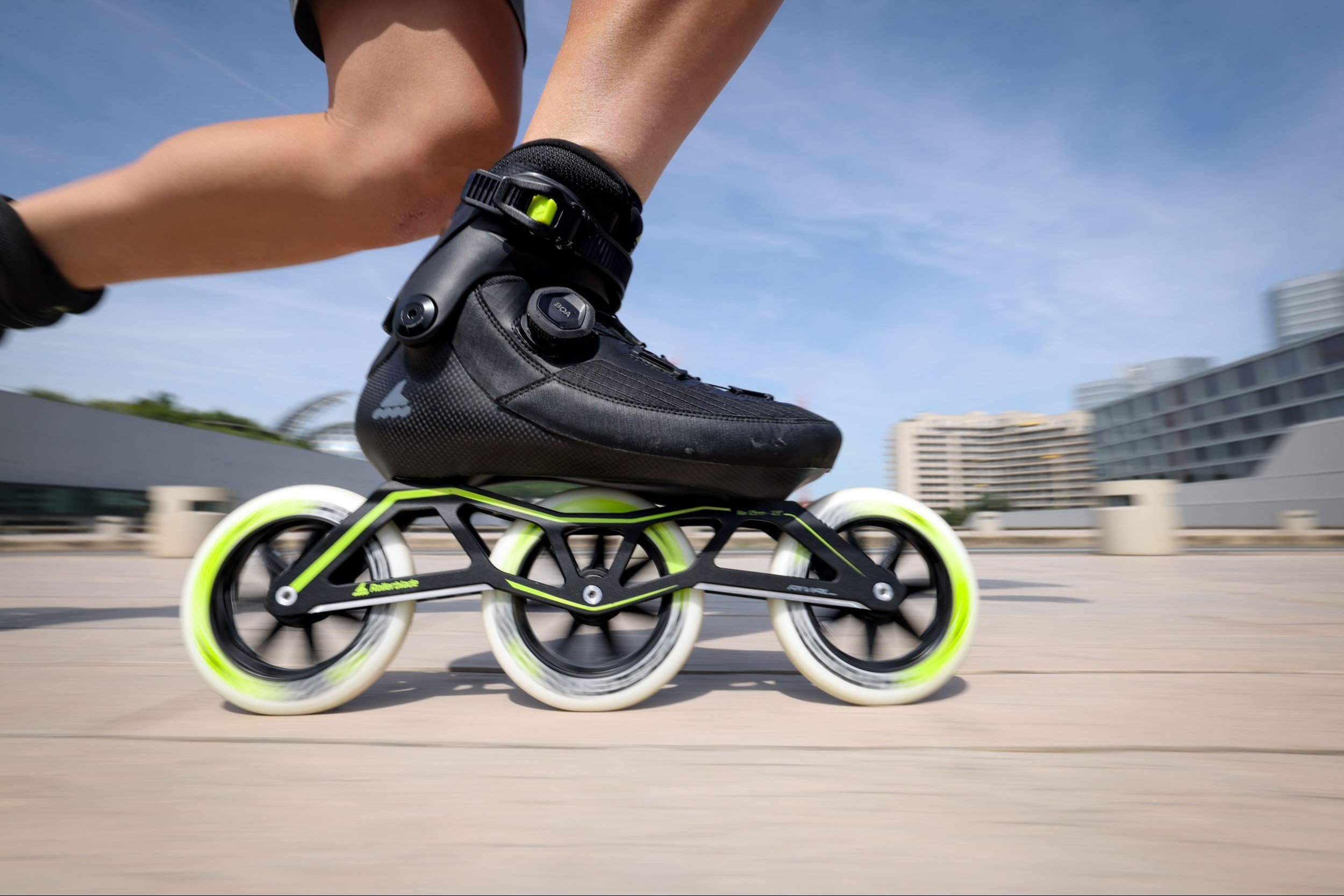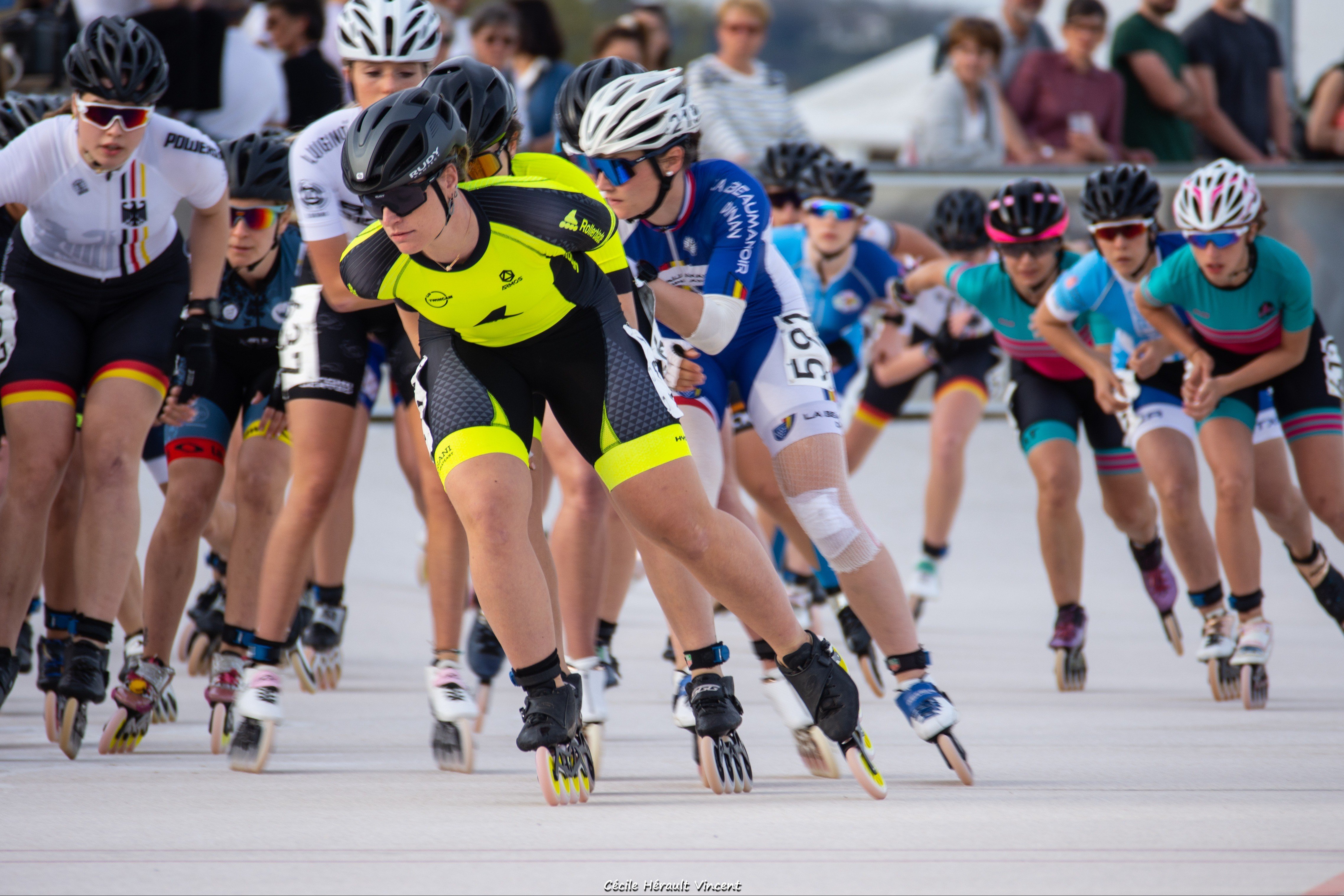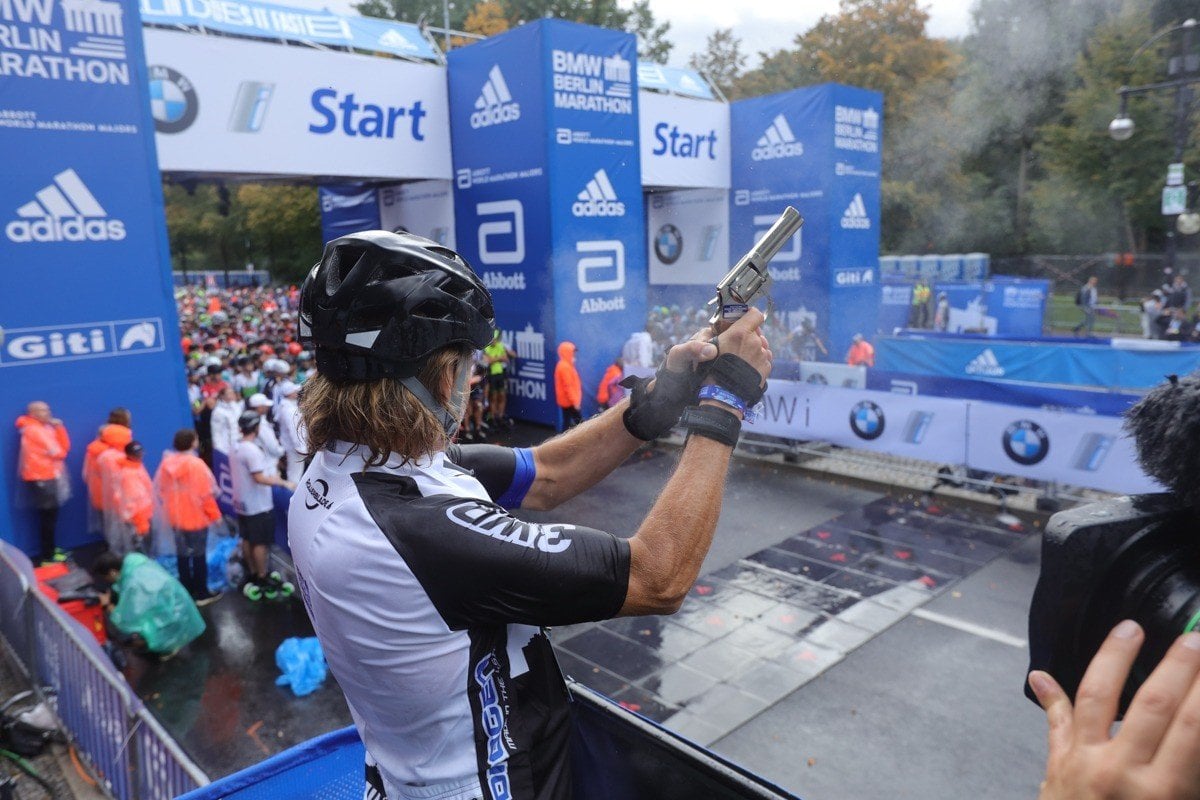
An inline skate marathon may sound intense, but they are a fun event that all levels can do. Most inline skate marathons offer multiple distances including the full marathon, a half marathon and a 10K. There are several events that offer a range of distances to check out including:
- Ljubljana Half Marathon, August 20, 2023, in Ljubljana, Slovenia
- Northshore Inline Marathon, September 16, 2023, in Duluth, Minnesota
- BMW BERLIN-MARATHON Inlineskating, September 23, 2023 in Berlin, Germany
- Florida Inline Skate Marathon, October 29, 2023, in Sarasota, Florida
To prepare for an inline skate marathon, below are tips on how to prepare, training tips and race day insight.
Preparation
A proper fitting skate, wheels and gear
A well-fitting boot is most important requirement for not only comfort, but also to reach your technique goals and avoid loss of power from your foot moving inside the skate. Using Rollerblade® socks and ankle wraps will greatly help fit and rubbing. Having quality wheels to train on and new ones for the race will optimize your roll on race day. Rollerblade® has a great verity of wheels sizes to all skates, including high-end races wheels, Hydrogen Pro, to high-quality performance wheels called Hydrogen. You may want to invest in athletic clothing to wick sweat and for overall comfort. Check out our skate recommendations here.
Warm Up
Skating requires a good balance and body awareness. Warm-up before each training session with dynamic movements and balance-oriented stretching.
Keep Rolling
Ideally, you are skating a few months prior to a marathon. For at least the last four weeks before the race you should be doing about 40-60 minutes of training three times a week to develop your stamina – on skates, a bike or run. Stair climbers at the gym are also a great tool.
Interval Training
The effort during an inline race is not an evenly balanced output of effort. You should always change up the pace within longer sessions. Think about it like intervals. Skate hard at 80% of max for a minute or so then skate at 50% for five minutes. Repeat as you are able for the 40–60-minute training session. At first, you may only manage a few intervals, but keep building upon that goal each time you skate.
Group Training
When possible, skate at least once in a group before participating in a marathon. This will give you more confidence for skating in a pace line at competition, this also can save up to 30 percent of your power by taking advantage of the slipstream created by the skater ahead of you. Find a training partner or skate in a group by attending a local skating club skating session or ask at your local skate shop.
Don’t Overdo Training
Take a break from training two days before the competition and do not push yourself too hard in the two weeks before race day. The day before the marathon, you can go on a short but intense skate (about 15-20 minutes) to get you pumped.
Check your equipment
Wheels, bearings, screws and boots need to be in good condition too. You should be checking axle bolts prior to each training session. Wheels will need to be rotated regularly; a good run of thumb is to rotate after each week if skating three sessions a week. Bearings should spin smoothly and can be cleaned and/or lubricated.
Race Day
The start
A marathon is not a sprint, don’t get caught up in the start line buzz, there is a lot of energy coming from you and other racers. At the start, you should stay calm and not try to overdo the first few miles. Find your pace and this will naturally help you find other skaters with the same pace you can skate with. You don’t want to risk falling or wasting your energy in the first five miles.
Be Realistic
Set a realistically goal for a time range to finish the race (100- 120 minutes). If you are new to skating, this may be your first year on skates and you can always improve at later marathons. Your goal should be to have fun, finish and enjoy the amazing feeling of inline skating!
Race at your level
In competition, sudden braking or maneuvers are important. Skate only as fast as your abilities allow. The training you have been doing will guide you and has helped define your technique and skill level.
Save Energy with the Pace Line
In a pace line you can makes sure you stay with your goal pace and not start off too fast. If you have a training partner, skate group or team, plan your pace and set your own pace line with your group. Inline skaters are friendly and will encourage folks to jump into an existing pace line.
Stay Hydrated
Sufficient hydration is crucial. Above all, it is important to rehydrate during the race, since dehydration, can risk a drop in performance, cramps or even a more serious medical issue. The race will have water station on the course. Make sure you know the mile makers for them so you and be ready to grab water as you skate by. Some folks race with a water bottle or hydro backpack.
Use these tips to help with your training plans to have a successful race day. Most importantly have fun!!
VIDEO

